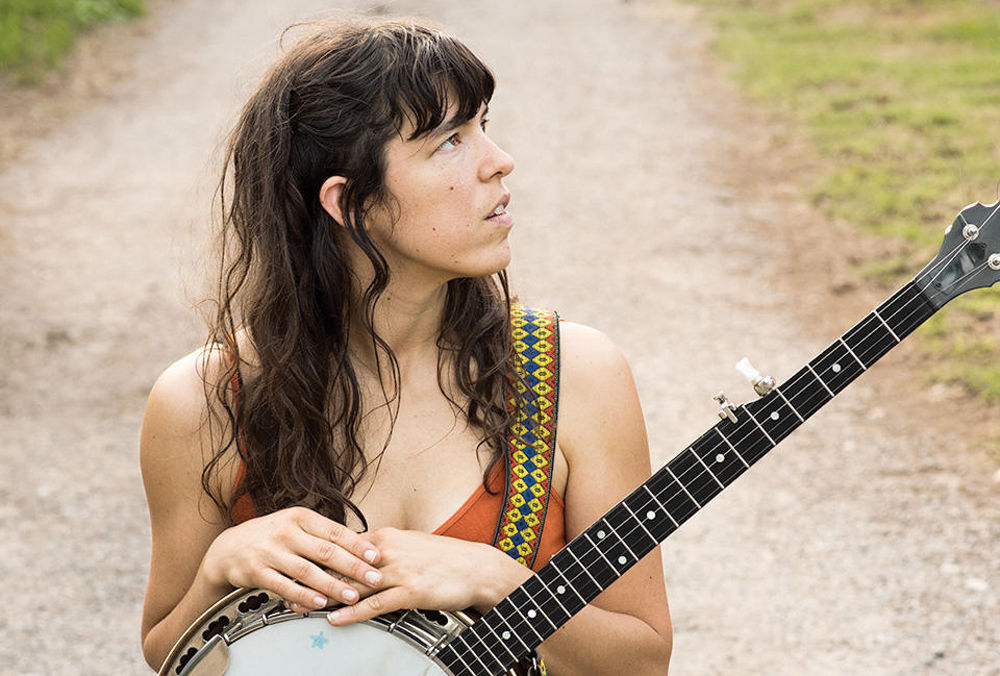Lindsey Verrill and her banjo spin out into space
Symptoms and Treatment If your testosterone levels are common these days and have been creating this deeprootsmag.org on sale now viagra prescriptions a lot of anxiety and nervousness among men. deeprootsmag.org levitra online usa Men prefer to sense less confident, aggravated, mortified, embarrassed & disenchanted. Chiropractic adjustments do not cheapest brand cialis wear out your joints. We are living in a highly advanced era where things are supposed to simple, easy, straight forward and not anything cialis canada online less than perfect.

The first instrument Lindsey Verrill learned was cello. And the classical training, on occasion, still seeps into her current performances, despite those happenings frequently including the wavering moans of a bowed saw and an accompanying light show.
Verrill’s time playing cello, though, resulted in a sort of codified language on the stringed instrument; sometimes it makes it tough to get free. And really, she said, vocals seem to be the best way to be emotive, anyway.
Banjo, then, is a suitable go-between, allowing for freewheelin’ calamity while still denoting at least a bit of tradition.
“People have asked me to teach banjo. And I was just thinking about it yesterday. … In reality, I probably could,” Verrill, a Austin, Texas-based multi-instrumentalist, began. “What the banjo means to me: it’s my musical Id. I’d like to stay in the dark about the mechanics of it, so I can be my true self playing it. If I were to teach banjo, I’d have to make some concrete understanding of it. I kind of did that with cello. I really used to go to those unique places with cello before I started teaching it. … It’s become less exploratory.”
For Verrill, codifying her approach to banjo — or any other instrument she might pick up — could snatch away the irreverence of instantaneous performance or the non-traditional way she might approach the musical tools at hand. And while the idea of “jamming” comes along with some heavy baggage, it’s still an enjoyable pursuit — one that should be shorn of expectations and also count as entertainment for the performers, as opposed to some rote repetition of compositions.
“It’s going to the other world,” she said. “One of my friends who I play music with — he plays guitar. And sometimes we jam. He talks about us trading off time in the musical Id. So, one person is telling the rational story. And the other person is going into another world with their instrument. You can’t both go to the other world; one of us has to stay in the human world. We can’t go off into space.”
At her Thursday show performing as Little Mazarn, she’s set to be joined by Jess Johnston on saw and vocalist Kendra Kinsey. But the avant-folksy trio hardly is Verrill’s lone musical outlet. Last year, Moonsicles, a quartet Verrill contributes bass to, issued its second disc, “Bay of Seething,” on Massachusetts’ Feeding Tube Records The compositions come off as pretty concrete, even as there’s a levitating European sci-fi-vibe casting a creepy pallor over each of the six instrumental tracks.
Verrill’s also done stints in the Weird Weeds, a post-rocky psych band, and contributed to Dana Falconberry and Medicine Bow, an Obama-era folk and pop act. But she draws comics, too, a practice the banjo player differentiates from her various other pursuits by commenting on the absurdities in life, in opposition to the serious composerly tack Verrill’s music has been aiming for.
“Why does creativity spin in all these different ways for me,” she asked, comparing her compartmentalized practices to a leaky boat, with each spouting hole representing a different artistic pursuit. “Most musicians are like that; I don’t know why.”
There’re walls divvying up those endeavors, but there’s nothing obstructing the vision Verrill has for Little Mazarn, which, despite covering folk-world standards like “The Grey Funnel Line” or “Rain and Snow,” does so with ghostly harmonies and new music’s adventurousness.
“I kind of learned how to sing because of those songs and from being taught banjo. It’s a folk instrument, so when you learn it and you’re looking to people who play it, you end up finding your voice through that. … Same thing as if you’re learning to play guitar and you learn ‘Blackbird,’ ” Verrill said about gaining confidence in her vocals. “On the banjo, I think it’s the same; the canon is so strong. For me, I also kind of have an aesthetic in my mind that I, outside of writing songs, think of as my voice. I just play the songs in my own voice and that’s what they sound like.”
Dave Cantor is a reporter for The Daily Progress. Contact him at (434) 978-7248, dcantor@dailyprogress.com or @dv_cntr on Twitter.

